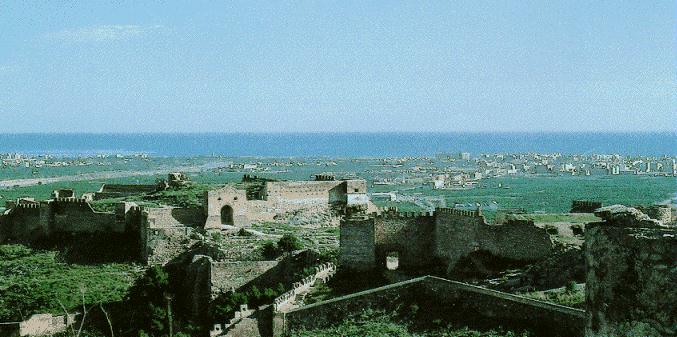

The first known human imprints in the area date from the Bronze Age, with discoveries being made in the sites of Pic dels Corbs, Aixeve, Picaio and l'Albardeta. In the 5th century BC, corresponding to the Iberian period, settlers constructed stone walls for protection and enclosed the ancient villages to build a fortress town. This town developed culturally and economically, coins were minted and trade with the Greeks and Phoenicians flourished. This relative prosperity was suddenly cut short in 219 BC by Hannibal, who besieged the city for eight months, meeting with heroic resistance from the inhabitants. This gave rise to the Second Punic War, and following the Roman victory a new process of growth and expansion commenced, with the city becoming known as Saguntum. Its splendour slowly fell following the Romanization of Hispania, when it was successively invaded by barbarians, Alans, Vandals, Goths and Bizantines in the 5th, 6th and 7th centuries.
In the 8th century, Saguntum was taken over by the Moors. As of this period, the town became known as the Arab Morbiter, becoming Morviedro in Castilian and Morvedre or Molvedre in Valencian, derived from the Medieval Latin muri veleres told walls). Under Arab dominion, it reached a new age of splendour, with baths, palaces, mosques and schools being built for the local populace.
In 1098 it was reconquered by el Cid, although the definitive reconquest and its return to the Christian fold ensued in 1238 under Jaime I. At that time Jews, Moors and Christians were still allowed to live in peace.
A few centuries later, the city was severely damaged during the war of the Germanias, the War of Spanish Succession (1701-1714), the Peninsular War (1808-1814) and the Carlist Wars (1833).
At the beginning of the 20th century, the steel industry began to flourish here, continuing production until the 80s, after which the area was declared a preferential industrial zone so as to stimulate the diversification of its industrial fabric, converting Sagunt into one of the most important economic hubs in the Land of Valencia.